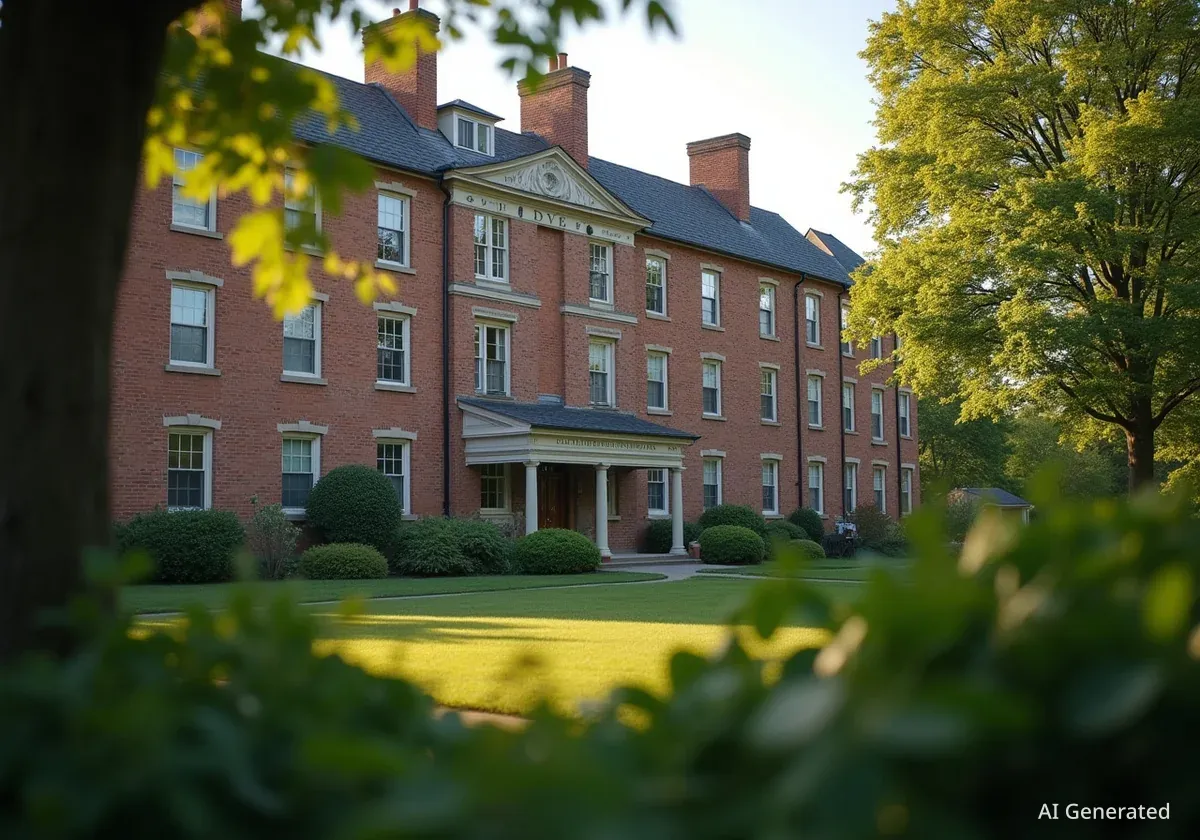Julius Jay Tanenbaum, a U.S. Navy veteran of World War II who became a prominent real estate developer on Long Island and across the tristate area, passed away on July 1, 2025. He was 99 years old, just six months away from his 100th birthday.
Tanenbaum's career spanned several decades, during which he transitioned from building residential homes to developing extensive commercial properties, including medical facilities and shopping centers. He remained actively involved in his company until his final days.
Key Takeaways
- Julius Jay Tanenbaum, a real estate developer and WWII veteran, died on July 1, 2025, at the age of 99.
- He served in the U.S. Navy in the Pacific Theatre during World War II as a Quartermaster Third Class.
- After the war, he founded a development company on Long Island, which grew to include residential, medical, and commercial properties.
- Tanenbaum was known for his strong work ethic, continuing to evaluate real estate deals into his late 90s.
- He is survived by his three children and eight grandchildren.
From Depression-Era Brooklyn to the Pacific Theatre
Born in New York City on January 2, 1926, Julius Tanenbaum was the son of Jewish immigrants David and Rose Tanenbaum. He grew up in Brooklyn during the Great Depression, a period that shaped his values of discipline and determination.
An academically gifted student, he graduated from James Madison High School at the age of 16. Following his graduation, he enrolled at the University of Maryland, where he played varsity football and initially planned to pursue a medical degree.
Answering the Call to Service
The course of his life changed following the attack on Pearl Harbor. In 1943, at the age of 17, Tanenbaum enlisted in the United States Navy to serve in World War II. He was assigned to the Pacific Theatre, a major center of conflict during the war.
As a Quartermaster Third Class, he held significant responsibilities aboard naval vessels. His duties included navigating destroyers and assisting officers on the bridge. He also served on amphibious assault ships, specifically LST 729, which were crucial for transporting troops to shore during intense battles.
"My father was a good sailor," his son John Tanenbaum said. "Not just on the water, but in life."
His military service exposed him to some of the most challenging conditions of the war, instilling a sense of resolve that would define his later business career.
A Career in Real Estate Development
After returning from the war, Tanenbaum completed his education at the University of Maryland, rejoining the Terrapins football team. To finance his studies, he began working in construction, building homes for others in Maryland.
This early experience in construction laid the groundwork for his future. Upon moving back to New York, he settled on Long Island and established his own residential development business. He started by building single-family homes, contributing to the post-war suburban expansion.
A Lifelong Work Ethic
Julius Tanenbaum remained an active participant in his company well into his 90s. According to his family, he continued to review and evaluate potential real estate acquisitions and had a business meeting scheduled for the week following his death.
Expansion into Commercial Properties
Tanenbaum's business acumen led him to identify new opportunities in the real estate market. He gradually expanded his company's portfolio beyond residential construction. Over the years, his firm undertook the development of medical facilities and office buildings, catering to the growing service economy.
His most significant expansion was into the development of shopping centers. His projects extended beyond Long Island to the broader tristate area and other regions, making his company a notable player in regional commercial real estate.
Legacy and Personal Philosophy
Throughout his long life, Tanenbaum was guided by a strong set of principles. He believed that a person's reputation and integrity were their most valuable assets. This philosophy was reflected in his business dealings and personal relationships.
He often stated that the true measure of success was not in the square footage of buildings developed but in the quality of the relationships built along the way. His son John noted that his father was still working actively at 99. "He did not really stop working," John said, highlighting his father's enduring passion for his profession.
A Century of Change
Julius Tanenbaum's life spanned nearly 100 years of American history. He witnessed firsthand the Great Depression, World War II, the post-war economic boom, the Cold War, and the dawn of the digital age. His experiences through these transformative periods deeply influenced his personal and professional outlook.
Family and Community
Tanenbaum's Jewish heritage was a cornerstone of his identity. He maintained a connection to Jewish traditions and emphasized the importance of responsibility to family, community, and charitable causes.
He was a dedicated patriarch to his family. His grandchildren remember him as an engaged mentor who discussed current events, offered business lessons, and consistently encouraged their educational pursuits. While known for his direct feedback, it was always coupled with unconditional support.
He remained active until his last days, enjoying sports, particularly tennis, and social activities like bridge and gin rummy with friends and family.
Julius Tanenbaum is survived by his three children, Ellen, Cindy, and John, and his eight grandchildren: Elizabeth, Jeff, Daniel, Sam, Josh, Ben, Hannah, and Rebecca. His life leaves a legacy reflected in the communities he helped build and the family he guided.





